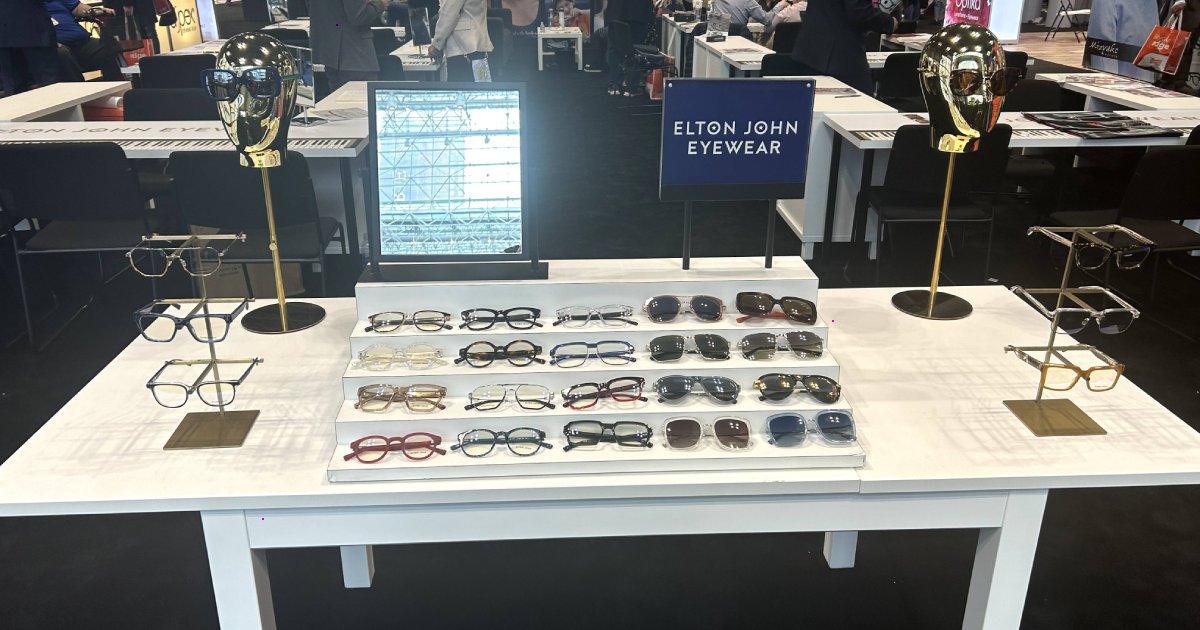
Eyewear Industry Focuses on Licensing
By Mark Seavy
It’s clear that brand licensing continues to be on trend in the eyewear category, especially as smart eyewear expands.
Licensing has been a focus for the industry for many years—Essilor, now EssilorLuxottica, was the first eyewear company to set its sights on the business in 1988 with Giorgio Armani—but in recent months there has been a dizzying number of brands finding their way into the world of eyewear.
About 80% of the industry’s unit sales are tied to licensing, according to executives, with brands ranging from high fashion (Prade, Gucci, Louis Vuitton) to children’s properties (Dr. Seuss, Sesame Street) and everything in between. And while revenue from sales of licensed products is a lesser percentage of the business, the agreements typically run five years or more.
EssilorLuxottica, for example, recently extended its agreement for Dolce & Gabbana for 16 years. And Safilo inked long-term agreements with Italian fashion brand Etro and Tapestry Holdings’ footwear label Stuart Weitzman for eyewear that will launch in the spring and fall, respectively. That deal marks Weitzman entering the eyewear business for the first time.
In fact, brands could be what finally connect consumers with so-called smart glasses, frames designed to connect to the Internet. Google Glass smart eyewear was discontinued last year after a 10-year run that started as a consumer product and ended with industrial uses.
“Our brand represents a new company with a new technology and when you are going up against Amazon and Ray-Ban, we are competing with brand awareness and not functionality,” said Harrison Gross, CEO of glasses supplier Lucyd Smart Eyewear, which licensed Authentic Brands Group’s Nautica and Eddie Bauer brands, the latter of which ships for the first time in April. “If you can combine functionality with a well-known brand, it’s a no-brainer for people.”
EssilorLuxottica began shipping the second generation Ray-Ban Meta Smart Glasses last November and Safilo followed in mid-December with its Carrera brand in a venture with Amazon. Neither company has introduced licensed offerings, however, despite both having broad portfolios.
“There is going to be this transition where there is technology that makes sense from a fashion standpoint, but we aren’t quite there yet,” said Boyd Wilson, Senior Brand Manager at Ray-Ban. “Our smart glasses may always be a house brand because we have far more creative control. There is much more involved with licensed brands in terms of getting something approved. We can try something a little out there with our Ray-Ban or Oakley brands and, if it doesn’t work, you don’t have to worry about tarnishing someone else’s label.”
This focus on brands was in clear evidence at the Vision Expo East event in New York last week. Eyewear by Design, for example, is relaunching Elton John-licensed eyewear to optical specialty retailers and optometrists with a more stylized version than were sold through 3,000 Walmart and Sam’s Club stores for about a year.
And EssilorLuxottica is extending its agreement with Capri Holdings’ Michael Kors to include a broader assortment of men’s eyeglasses and sunglasses, while supplier Charmant is readying a men’s collection under WHP Global’s Isaac Mizrahi brand, a first for the fashion label.
“The optics and lens appear almost exactly alike but if you put a brand on the glasses, it makes them different,” said Al Fonseca, Director of Business Development at Eyewear Designs.
The continued growth of licensed eyewear comes as its role as a fashion accessory gets a higher profile. More than ever before, eyewear is being purchases largely because of aesthetic reasons, industry executives said. The value of the overall global eyewear market (which includes products as well as services) is forecast to increase to $215 billion by 2033, up from $146.1 billion last year and with a 3.9% annual growth rate.
Yet whether eyewear is carrying a licensed brand or adding the technology for smart glasses, the choice will always come down to consumer preferences.
“It’s different for everybody,” said Susy Adzhimanukyan, Senior Director of Sales at De Rigo Rem, which has licenses for Jones New York, Lucky Brands, and others. “Some people like the brand all over the frame and others want it very discreet.”

















